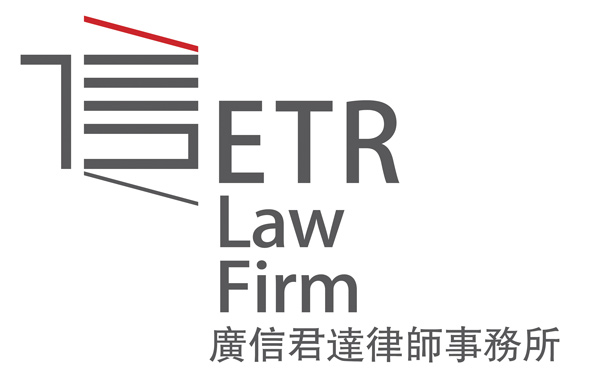In early 2016, a mainland Chinese resident called Zhou, residing in Zhuhai, issued a loan covenant to a bank in the neighbouring Macau Special Administrative Region (SAR), applying for an investment loan. Under the covenant, any matters not covered in it would be handled in accordance with the current laws of Macau. Subsequently, the bank issued the loan to Zhou, who repaid by instalments on schedule until the repayments stopped one day due to Zhou’s personal reasons.

Partner
ETR Law Firm
As Zhou had no enforceable asset in Macau, the bank brought an action at the court of competent jurisdiction in Zhou’s usual place of residence. Under the loan covenant, disputes concerning its terms should be governed by Macau law.
To substantiate the application of laws related to this case, the authors’ team submitted a legal opinion issued by practising lawyers in Macau to the People’s Court of Hengqin New Area, which has jurisdiction in such commercial matters.
Eventually, the Hengqin court affirmed the authenticity of the legal opinion by way of a judgment, and ordered Zhou to repay the loan principal, accrued interest, overdue charges and interest on deferred payments to the bank in accordance with Macau law.
In June 2022, the case was selected in the fourth batch of standout cross-border disputes in the Greater Bay Area (GBA) by the Guangdong High People’s Court.
COMPETENT JURISDICTION
The first thing to keep in mind is that the bank in this case is a financial institution duly incorporated in Macau, licensed by the Monetary Authority of Macau, and lawfully operating in Macau. Therefore, the case was considered a financial loan contract dispute involving a Macau party.
According to articles 1 and 19 of the Interpretation of the Supreme People’s Court on Several Issues Concerning the Foreign-Related Civil Relations Application Law (I), this case should be tried with reference to foreign-related civil procedures.
Second, Zhou resides in Zhuhai, Guangdong province, and the Supreme People’s Court has granted the People’s Court of Hengqin New Area centralised jurisdiction over the first instance of all Zhuhai’s civil and commercial cases involving foreign countries, as well as Hong Kong, Macau and Taiwan. The Hengqin court therefore had competent jurisdiction.
GOVERNING LAW

Partner
ETR Law Firm
According to article 41 of the Foreign-Related Civil Relations Application Law, parties may by agreement choose the law applicable to their contract. In the absence of such a choice, the law of the usual residence of the party whose performance of obligations can best embody the contract – or other laws most related to the contract – shall apply.
In this case, both parties clearly stipulated in the contract that the laws of Macau shall apply as the governing law.
Therefore, the authors’ team submitted to the Hengqin court a legal opinion issued by Macau practising lawyers, citing provisions from the Macau Civil Code, Macau Commercial Code, Macau Code of Civil Procedure and Executive Order No. 29/2006 of the Macau SAR. The Macau lawyers also provided interpretations and applications of these provisions to the Hengqin court for reference purposes.
The judge confirmed the cited provisions on the website of the Printing Bureau of Macau and affirmed the accuracy of the legal opinion.
In addition, to further support the opinion, the authors’ team submitted a separate ordinary judgment on the plaintiff from the Macau court concerning a similar case. The judgment of this case had become final, and the legal justifications reflected the comprehensiveness and accuracy of the opinion at hand.
Therefore, the Hengqin court adopted the legal opinion on the substantive law, and ruled that Zhou should repay the loan principal and accrued interest, overdue charges and interest on deferred payments to the Macau bank.
As Zhou had taken the loan to repay his home mortgage with a bank in mainland China, and the house was co-owned with his wife, the Macau bank – to fully protect its rights and interests – claimed that Zhou’s wife should be jointly and severally liable for the debt.
Although the main legal relationship in this case was based on the financial loan contract, which named Macau law the governing law, article 24 of the Foreign-Related Civil Relations Application Law, which concerns property relationship between husband and wife, provides that “the parties may choose by agreement the law at the habitual residence, that of the state of nationality, or that at the location of the main property of one party as the governing law. In the absence of such a choice, the law of the mutual habitual residence shall apply, failing which, the laws of the mutual state of nationality shall apply.”
Since Zhou and his wife did not choose a governing law, and both resided in mainland China, then Chinese law should apply to their property relationship.
The Hengqin court dismissed the claim because the Macau bank did not produce sufficient evidence that Zhou’s debt was used for the couple’s co-habitation or joint business, or was based on the common intention of the couple.
To sum up, when handling a Macau-related case it is necessary to determine whether the laws of mainland China or Macau should apply to a legal relationship according to relevant provisions of the Foreign-Related Civil Relations Application Law.
CASE REVIEW
In September 2021, the Party Central Committee and State Council publicly released the General Plan of the Development of the Guangdong-Macau In-Depth Co-operation Zone in Hengqin, setting out blueprints to support Hengqin as a co-operation zone for the entire GBA. The zone was set up against the backdrop of Macau’s talent shortage due to its small population size, facilitating its efforts to attract talent from Zhuhai.
The acceleration of exchanges and interactions between Zhuhai and Macau will inevitably result in a growing number of Macau-related civil and commercial disputes. Given the different legal systems, how best to address the conflict between governing laws could be the key to judgment.
This case, with its adoption of the Foreign-Related Civil Relations Application Law, applying the principle of most significant relationship, can be held as a reference for successfully addressing the application of conflicting governing laws.
While safeguarding the order of cross-border financial dealings, such cases also serve to remind mainland Chinese borrowers that taking an overseas loan does not mean a greater chance at dodging repayment.
Cycle Lam and Carol Chan are partners at ETR Law Firm
10 & 29/F, Chow Tai Fook Finance Centre
No. 6 Zhujiang Dong Road
Guangzhou 510623, China
Tel: +86 20 3718 1333
Fax: +86 20 3718 1388
Email:






















